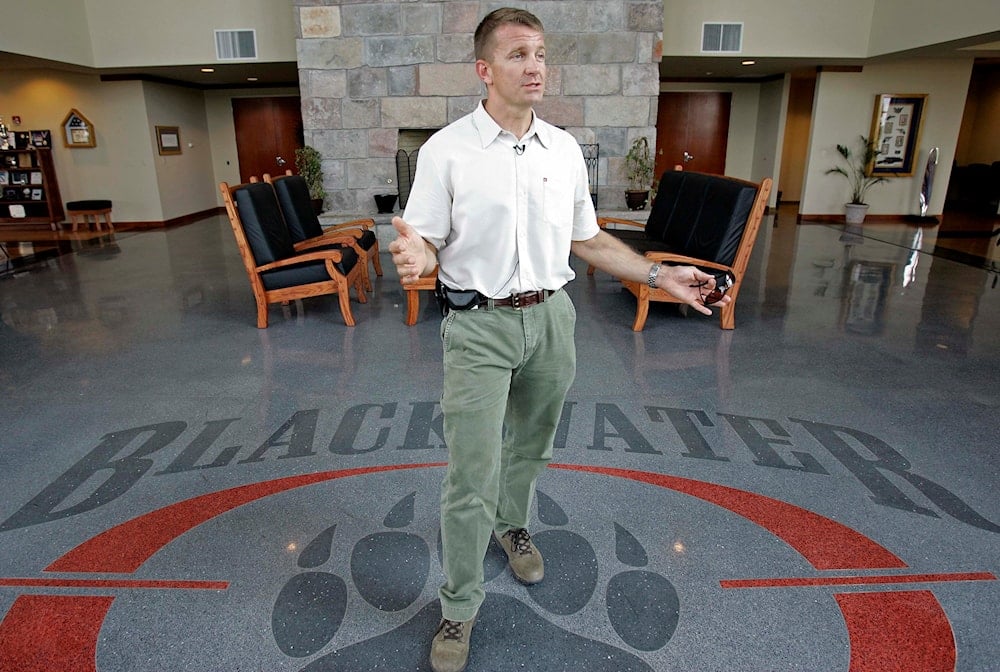Erik Prince’s private army moves into Haiti, raising rights concerns
Blackwater founder Erik Prince's Vectus Global prepares to expand its mission in Haiti, allegedly to combat gangs and reclaim key territories.
-

In a July 21, 2008, file photo, founder and CEO of Blackwater Worldwide Erik Prince talks at Blackwater's offices in Moyock, NC. (AP)
In the coming weeks, hundreds of militants from the US, Europe, and El Salvador are expected to be deployed to Haiti to allegedly confront the country’s gangs as part of a mission overseen by Erik Prince, the controversial founder of Blackwater and a known supporter of US President Donald Trump.
According to Reuters, Erik Prince’s new security firm, Vectus Global, which has been operating in Haiti since March amid the country’s escalating gang violence, is gearing up to expand its operations in an alleged effort to assist local authorities in reclaiming critical roads and territories from heavily armed criminal groups that have long held control over them.
Prince, who stated that his company had secured a 10-year agreement with Haiti's government, emphasized that a critical benchmark for success would be the ability to travel safely between Port-au-Prince and Cap-Haitien in an ordinary, unarmored vehicle without facing disruptions or threats from gang activity along the route. Under the agreement, Vectus will play a role in tax collection in Haiti.
According to Reuters, an insider with knowledge of Vectus' activities in Haiti revealed that the company's deployment would involve specialized personnel, such as snipers and intelligence experts, as well as equipment, including helicopters and boats.
Questionable role
Prince’s security firm, which operates under the slogan "we don’t just advise, we act," has been active in Haiti since March and, according to Reuters, has been conducting drone operations in collaboration with a task force overseen by the prime minister.
Romain Le Cour, who leads the Haiti Observatory at the Global Initiative Against Transnational Organized Crime, criticized the initiative as undermining both Haiti's national police force and the UN-backed security mission deployed in the previous year, describing it to The Guardian as a significant step backward for the country's institutions.
Le Cour noted that despite six months of deployment, criminal gangs still maintain control over key strategic areas.
Le Cour expressed concern that the introduction of foreign contractors would further isolate Haiti's national police and the Kenya-led security mission strategically, at a time when these forces are actively working to reestablish authority and stability across the country.
Haiti faces worsening gang crisis
Haiti, the poorest country in the Western Hemisphere, is grappling with severe political instability.
The country, currently governed by a transitional administration, has seen a renewed escalation in violence since February as gangs expand into areas once considered secure.
The United Nations reports that gangs now control 85% of Port-au-Prince and are intensifying assaults on remaining unoccupied territories, while also revealing that the violence has displaced a record number of nearly 1.3 million people within Haiti.

 3 Min Read
3 Min Read








